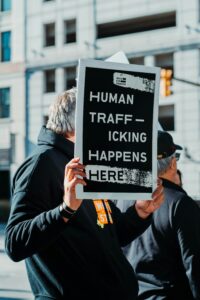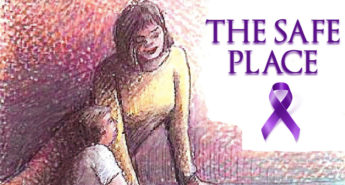 January is National Human Trafficking Awareness Month, to think about how human trafficking and domestic violence go hand in hand. On January 11th, National Human Trafficking Awareness Day, we remind ourselves about supporting survivors and raising awareness of the realities of trafficking. These observance days serve as a crucial reminder of the need to protect vulnerable populations and provide support for survivors of both trafficking and domestic violence.
January is National Human Trafficking Awareness Month, to think about how human trafficking and domestic violence go hand in hand. On January 11th, National Human Trafficking Awareness Day, we remind ourselves about supporting survivors and raising awareness of the realities of trafficking. These observance days serve as a crucial reminder of the need to protect vulnerable populations and provide support for survivors of both trafficking and domestic violence.
Human trafficking, often referred to as modern-day slavery, impacts millions of individuals worldwide, including many within our own communities. Victims can be men, women, or children and may be subjected to forced labor, sexual exploitation, or other forms of servitude. Traffickers frequently prey on individuals who are already vulnerable—including those experiencing domestic violence—using manipulation, coercion, and control to exploit them further.
For survivors of domestic violence, the risks of trafficking are heightened. Abusers may force their partners into trafficking situations as a form of control or exploitation. Similarly, individuals fleeing abusive relationships may find themselves in precarious situations where traffickers take advantage of their need for shelter, safety, or financial stability. This overlap underscores the importance of services like ours that address both in a trauma-informed manner.
Recognizing the signs of trafficking is vital. Indicators may include:
- Unexplained injuries or signs of physical abuse.
- Fearful or submissive behavior, often accompanied by lack of eye contact.
- Someone being controlled by another person, including restrictions on movement or communication.
- Poor living conditions or signs of malnutrition.
- Lack of access to personal identification documents, such as a passport or ID.
If you suspect someone may be a victim of trafficking, acting responsibly is critical. Contact the National Human Trafficking Hotline at 1-888-373-7888 or text “BEFREE” (233733). These resources provide confidential support to victims and concerned individuals 24/7.
This month is also an opportunity to amplify awareness and advocacy efforts. Attend local events, such as awareness walks, workshops, or community discussions, to learn more about trafficking and domestic violence. Share educational materials on social media to help others recognize the signs of trafficking and understand its connection to domestic abuse. Additionally, consider supporting organizations that provide direct services to survivors, including shelters, counseling, and job training programs.
At our shelter, we understand that collaboration is key to addressing the intertwined issues of trafficking and domestic violence. We work closely with local agencies, law enforcement, and advocacy groups to create a network of support for survivors. Prevention efforts—such as providing safe housing, job hunting support, and education—are critical to reducing vulnerabilities and breaking the cycles of abuse and exploitation.
As we observe National Human Trafficking Awareness Month and Day, let us renew our commitment to supporting survivors and creating a world free from exploitation. By staying informed, vigilant, and united, we can help ensure that every individual has the opportunity to live a life of dignity, safety, and freedom.
https://humantraffickinghotline.org/en/report-trafficking
https://www.acf.hhs.gov/otip/victim-assistance/national-human-trafficking-hotline




Leave a Reply